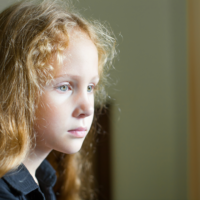internalising symptoms
-
Cognitive inflexibility contributes to both externalising and internalising difficulties in ASD
Children with autism spectrum disorder (ASD) commonly experience internalising and externalising symptoms, but the underlying cognitive mechanisms are unclear. In their latest study published in the Journal of Child Psychology and Psychiatry, Ann Ozsivadjian and colleagues examined the role of three cognitive factors that might contribute to these difficulties. Specifically, they hypothesized that intolerance of […]
Read more -

‘Cool Little Kids’ helps reduce later anxiety symptoms but not broader internalising problems
Children with a shy/inhibited temperament are at risk of developing internalising problems later in life.1 Unfortunately, the responses to such behaviours by some parents — such as overprotective or harsh parenting — can add to this risk.
Read more -

Cognitive inflexibility contributes to both externalising and internalising difficulties in ASD
Children with autism spectrum disorder (ASD) commonly experience internalising and externalising symptoms, but the underlying cognitive mechanisms are unclear. In their latest study published in the Journal of Child Psychology and Psychiatry, Ann Ozsivadjian and colleagues examined the role of three cognitive factors that might contribute to these difficulties.
Read more -

Sleep problems from infancy are linked with impaired well-being in middle childhood
Researchers in the USA and Australia have found that sleep disturbances from early childhood are associated with reductions in well-being at age 10-11 years old. Ariel Williamson and colleagues came to this conclusion after analysing data from >5,000 children enrolled in the Longitudinal Study of Australian Children – Birth Cohort.
Read more -

Variable sleep schedules might put preschoolers at risk of academic difficulties
New data suggest that internalizing problems are associated with sleep variability and that cognitive ability is associated with sleep timing.
Read more -

Shared genetic risk underlies the co-occurrence of ADHD and other psychiatric symptoms
Data from twin studies suggest that the co-occurrence of ADHD with other psychiatric disorders is due, in part, to shared genetic risks.
Read more -

Gender-specific pathways mediate the risk of substance use in adolescents with ADHD
Data suggest that children with attention-deficit/hyperactivity disorder (ADHD) are more likely to start smoking tobacco and/or marijuana earlier in childhood than unaffected children, and then escalate use during adolescence. Now, a study by researchers at the University of Minnesota has examined the mediating pathways underlying this association between childhood ADHD and later substance-abuse problems.
Read more -

Family group cognitive behavioural therapy reduces youth internalising problems
Living with a parent with depression can have a marked impact on a child’s overall psychological, behavioural and social welfare. Preventative programs that alter parenting and boost children’s coping strategies in affected families seem to reduce youth internalizing problems, but the broader effects of these programs are unclear.
Read more -

Resilience Edition
In this edition we bring together a number of papers that broadly discuss the theme of resilience and developing resilience through therapy.
Read more -

CAMH – Volume 22, Issue 1 February 2017
Lisa Keane and Maria Loades
Background
Read more
Cognitive behavioural therapy for low self-esteem (LSE) has shown promise as a trans-diagnostic model for treating mental health difficulties in adults. To ascertain the potential value of this treatment approach in working with young people with internalizing disorders, we need to develop our understanding of LSE within these mental health conditions.